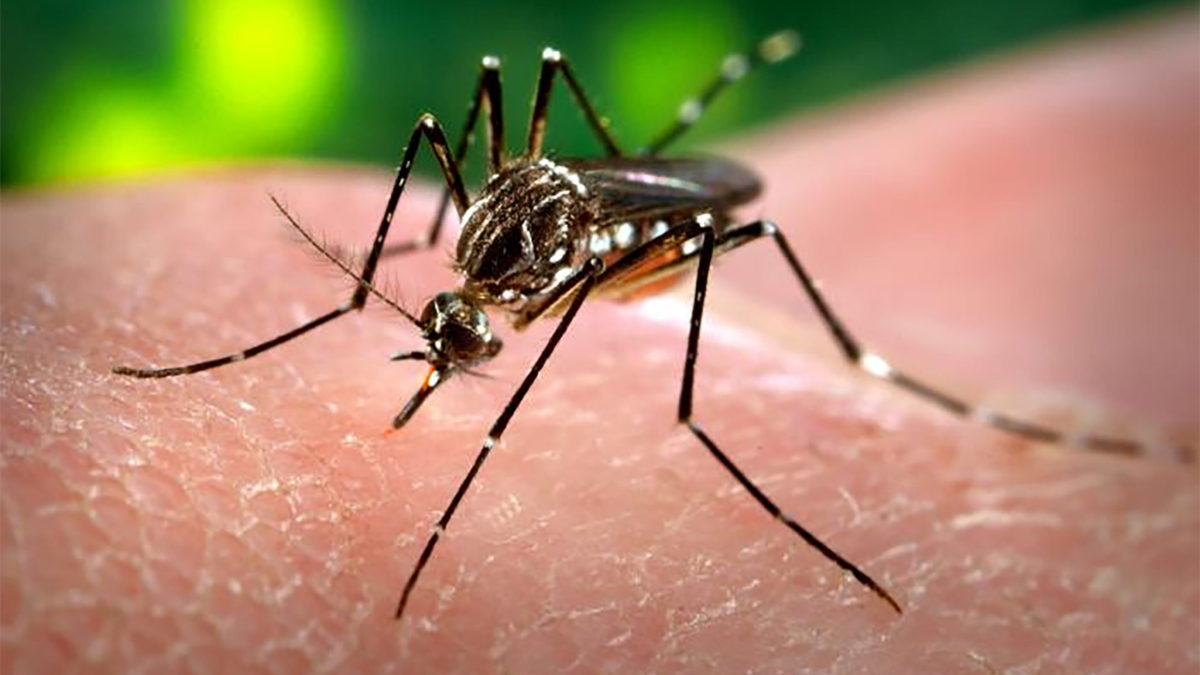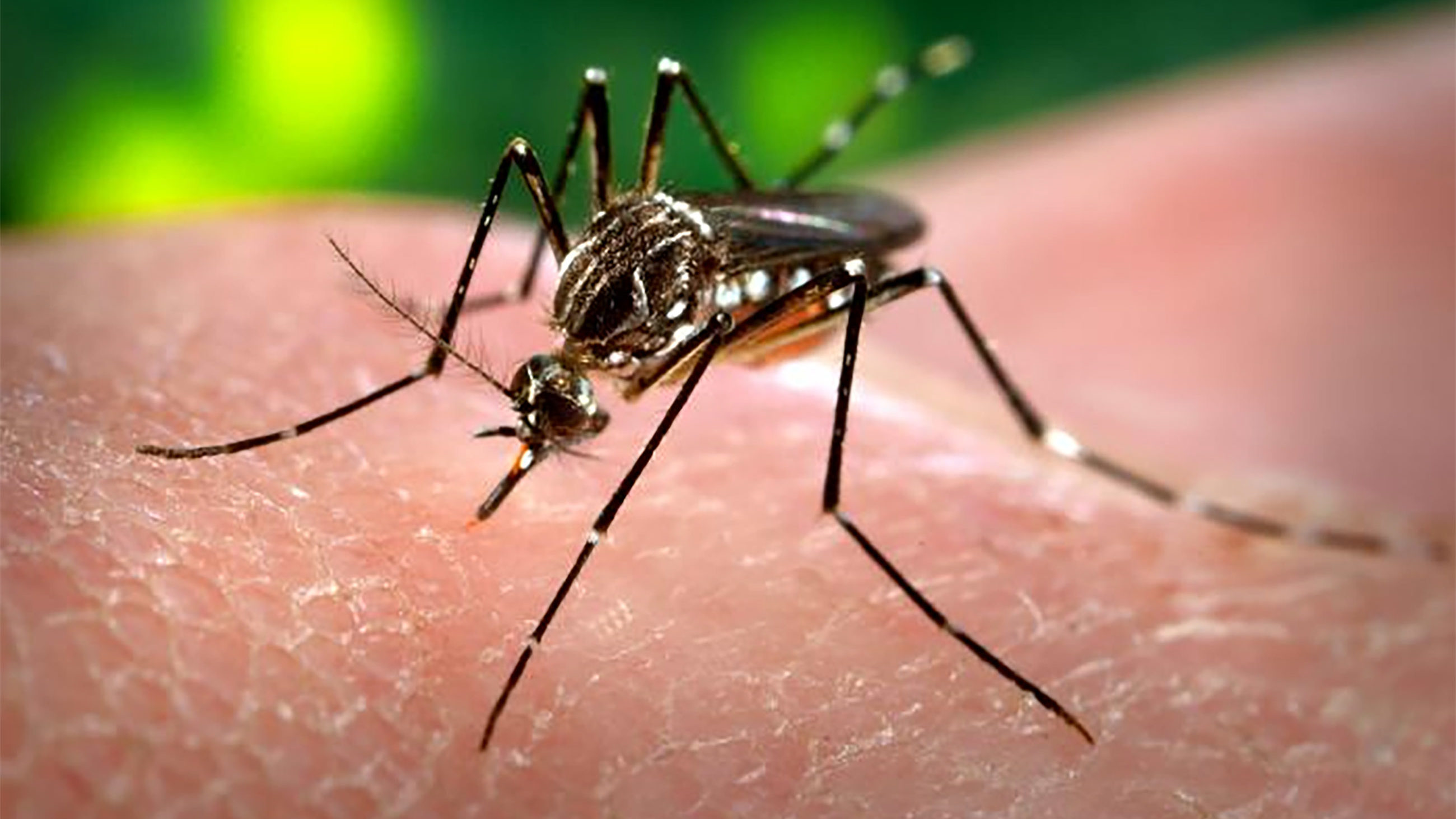Steering Public Sentiment on Genetically Modified Mosquitoes
Florida is just months away from releasing genetically modified mosquitoes that authorities hope will mate with females in the wild, produce sterile offspring, and in time, drive down populations of Aedes aegypti mosquitoes that carry diseases like dengue, Zika and chikungunya.

Florida officials are hoping to experiment with genetically altered versions of mosquitoes that carry diseases like the Zika virus. Not everyone likes the idea.
Visual: U.S. Centers for Disease Control and Prevention
Not everyone is looking forward to that. The experiment, led by the British company Oxitec and the first of its kind on U.S. soil, has seen fierce opposition from a small group of residents in the Florida Keys. A recent referendum found that 65 percent of the residents of Key Haven, a community that was to receive Oxitec mosquitoes, opposed the trial — and similar sentiments have blossomed elsewhere. An online petition started years ago in opposition to the Oxitec trial has garnered more than 170,000 signatures to date, and critics have expressed fears of unintended consequences associated with releasing the experimental bugs.
In the face of that opposition, the local mosquito control board recently decided that it will look for a new site to replace Key Haven. But that leaves the pressing question of why the Oxitec trial has proven to be such a hard pill to swallow. After all, public health authorities have been running educational campaigns about the genetically modified mosquitoes in Florida for years. And previous trials using Oxitec mosquitoes, like those conducted in the Cayman Islands in 2009 and 2010, have shown real promise in suppressing wild populations of the Aedes aegypti mosquito.
It may come down to a gap in community outreach that’s difficult to fill, says Kacey Ernst, an infectious disease epidemiologist at the University of Arizona who has studied public sentiment surrounding the Florida mosquito trials. Ernst says that the community engagement strategies performed in that state, while extensive, weren’t enough to sway fierce opposition.
“They did a lot of community engagement. They really did try to get the word out,” explained Ernst. “But we found there was a small contingent, about 10 percent of people, that were extremely, strongly opposed,” she added, referring to a public perception study she conducted in Florida in 2012 which documented the hurdles to selling genetically modified mosquitoes to a small but entrenched population of skeptics. “Little data exist on the type and extent of outreach required or community support needed to reduce opposition,” she and her co-authors wrote.
Perhaps, Ernst suggests, it’s the absence of real and visible consequences to inaction — at least so far. When real risks are staring a community in the face, after all, authorities tend to see much higher rates of approval of genetically modified mosquito technology. That’s what happened on the Cayman Islands, which are currently three-and-a-half months into a nine-month deployment of the same G.M. mosquitoes planned for Florida. The project, which is a collaboration between Oxitec and the Cayman Islands’ Mosquito Research and Control Unit (MRCU), enjoys support from 69 percent of approximately 700 Caymanians surveyed.
But that trial was not without its problems at the start. Some opponents claimed that Oxitec and the Cayman Islands government, for example, had launched the project in 2009 in secret, and without public buy-in. The MRCU and Oxitec, however, told Undark that was categorically untrue, and that a public engagement campaign was mounted long before the first mosquitoes were released. But once Zika began knocking on the door of the Caymans, attitudes shifted quickly.
“With the advent of Zika virus arriving on our shore, which was in August,” said Catherine MacGillivray, a spokeswoman with the Cayman Islands government, “we started seeing an immense number of people contacting MRCU, asking for treatment and also people asking for the [Oxitec] program to be fast-tracked across the island.”
That kind of strong support was also seen in Brazil, says Renaud LaCroix, the project manager for Oxitec’s Cayman enterprise. LaCroix, who worked on the mosquitoes’ rollout in Brazil, says that communities there appreciated the benefits of such an intervention because the risks posed by Aedes aegypti mosquitoes were much more visible. “In Brazil, everyone knows someone who had dengue, and now everyone knows someone who has had Zika,” he said. “And unfortunately, people have lost people to those diseases.”
In the Florida Keys, on the other hand, opposition to Oxitec’s mosquitoes may be fueled by a lack of exposure to these problems, LaCroix says. “It’s difficult to feel the danger when it’s on the other side of the world. You don’t really feel affected by it.”











Comments are automatically closed one year after article publication. Archived comments are below.
“Little data exist on the type and extent of outreach required or community support needed to reduce opposition”
Quite so. There’s a lot of chatter about how we have to use our shared values in discussions. But we think we share the values–reducing disease and suffering, reducing pesticide use, less harm to non-target species, etc. But when you try to share your values, the opponents of the tech don’t show up. Or they show up for the public meeting, read their statement, and refuse to stay for discussion.
What can you do? And sure, it’s a small group. But obviously the loudness of their shouting works.
I look forward to people researching what works on complete obstinance and denial of facts. We’re gonna need that on many fronts.
Mary, anyone reading only this story would have a very distorted view of the situation. There were two non-binding referenda about the GMO mosquitoes. There was a county-wide referendum in which 40000 voters preferred releasing the GMO mosquitoes by about 56%. There was also a vote on the identical question in one precinct, in which the 600 voters in that precinct were against the release by about 2 to 1.
What does this mean? Oxitec is wholly owned by the company Intrexon. It’s closing price on election day was about 24.50 per share. Since then it has jumped to 31.30 – and there is no other news to explain the move except the Florida referendum results.
Well there was actually a little bit more news than just the mosquito vote results. There were positive trial results from a cancer treatment partner ZIOP showing good survival rates in glioblastoma patients and positive mucositis results from OGEN, another collaboration.
XON is a multi sector disruptor with its synthetic biology platform. Become familiar with it is going to be a household name soon.
Well there was some additional positive news in clinical trial results from partner ZIOP re: glioblastoma patients survival as well as mucositis advances in clinical trials with collaborator OGEN. XON is a multi sector disruptor which will soon be a household name.